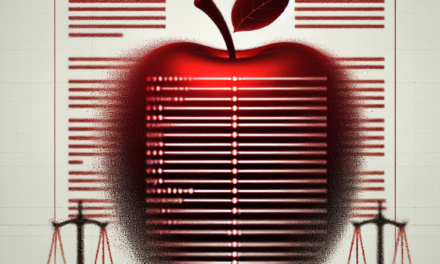“Gen X: Trailblazers of 401(k) Plans, Navigating Tomorrow’s Uncertainties Today.”
Introduction
Generation X, often overshadowed by the larger Baby Boomer and Millennial cohorts, has played a pivotal yet underappreciated role in shaping the modern retirement landscape through their pioneering adoption of 401(k) plans. Born between 1965 and 1980, this resilient generation was the first to widely embrace these employer-sponsored retirement savings accounts, navigating the shift from traditional pension plans to self-directed retirement planning. Despite their early adoption and contributions, Gen X now faces an uncertain financial future, grappling with economic challenges, market volatility, and the pressures of supporting both aging parents and growing children. As they approach retirement age, the financial security of Gen X remains precarious, highlighting the need for renewed focus and strategic planning to ensure their hard-earned savings can sustain them through their golden years.
Understanding Gen X: The Unsung Heroes of 401(k) Plans
Generation X, often sandwiched between the much-discussed Baby Boomers and Millennials, has played a pivotal yet frequently overlooked role in the evolution of retirement savings, particularly through the adoption and development of 401(k) plans. Born between 1965 and 1980, Gen Xers were the first cohort to widely embrace 401(k) plans as a primary means of retirement savings, marking a significant shift from the traditional pension plans that their parents relied upon. This transition was not merely a change in financial strategy but a reflection of broader economic and cultural shifts that characterized the late 20th century.
The introduction of 401(k) plans in the early 1980s coincided with Gen Xers entering the workforce. Unlike defined benefit pension plans, which promised a specific payout upon retirement, 401(k) plans shifted the responsibility of retirement savings from employers to employees. This change required individuals to become more proactive in managing their financial futures. Gen X, known for its adaptability and resilience, rose to the challenge, becoming pioneers in navigating this new landscape of retirement planning. They learned to balance the risks and rewards of investing in the stock market, often without the guidance or financial literacy resources available today.
Despite their pioneering role, Gen Xers have faced numerous challenges that have complicated their retirement planning. The economic recessions of the early 2000s and the 2008 financial crisis significantly impacted their savings, as many saw their 401(k) balances plummet. Additionally, the rising costs of education, healthcare, and housing have placed further strain on their ability to save adequately for retirement. As a result, many Gen Xers find themselves in a precarious position, with retirement looming on the horizon and insufficient savings to ensure financial security in their later years.
Moreover, the lack of attention given to Gen X in discussions about retirement planning has left them without the targeted support and resources that other generations have received. While Baby Boomers have benefited from extensive research and policy focus due to their large numbers and impending retirements, Millennials have been the subject of numerous studies and initiatives aimed at improving financial literacy and savings habits. In contrast, Gen X has often been overlooked, leaving them to navigate the complexities of retirement planning largely on their own.
As Gen X approaches retirement age, it is crucial to recognize their unique challenges and contributions to the evolution of retirement savings. Policymakers, financial institutions, and employers must address the specific needs of this generation, providing them with the tools and resources necessary to secure their financial futures. This includes offering targeted financial education programs, creating incentives for increased savings, and developing policies that address the economic pressures that have hindered their ability to save.
In conclusion, Generation X has been the unsung hero in the story of 401(k) plans, pioneering a new approach to retirement savings amidst a rapidly changing economic landscape. However, their journey has been fraught with challenges that have left many facing uncertain futures. By acknowledging their contributions and addressing their unique needs, society can ensure that Gen Xers are not only recognized for their pioneering spirit but also supported in achieving the financial security they deserve in retirement.
The Financial Challenges Gen X Faces in Retirement Planning
Generation X, often overshadowed by the larger Baby Boomer and Millennial cohorts, has played a pivotal role in shaping the modern retirement landscape through their early adoption of 401(k) plans. As the first generation to widely embrace these employer-sponsored retirement savings accounts, Gen Xers have been at the forefront of a significant shift in how Americans prepare for their post-working years. However, despite their pioneering efforts, many members of this generation now face a myriad of financial challenges that threaten their retirement security.
To begin with, the economic environment in which Gen X has navigated their careers has been marked by volatility and uncertainty. Having entered the workforce during the economic upheavals of the late 20th century, including the dot-com bubble and the 2008 financial crisis, many Gen Xers have experienced significant disruptions to their savings and investment strategies. These economic downturns have not only affected their ability to contribute consistently to their 401(k) plans but have also impacted the growth of their retirement portfolios. Consequently, many find themselves with insufficient savings as they approach retirement age.
Moreover, the shift from defined benefit pension plans to defined contribution plans, such as 401(k)s, has placed a greater responsibility on individuals to manage their own retirement savings. This transition has required Gen Xers to become more financially literate and proactive in their investment decisions. However, not all have been equipped with the necessary knowledge or resources to effectively navigate this complex financial landscape. As a result, some have made suboptimal investment choices, further jeopardizing their retirement readiness.
In addition to these challenges, Gen X is also grappling with the financial burdens of supporting both aging parents and dependent children. Known as the “sandwich generation,” many Gen Xers find themselves caught between the dual responsibilities of caring for elderly relatives while simultaneously funding their children’s education. This dual financial strain can significantly deplete their resources, leaving less available for retirement savings. Furthermore, the rising costs of healthcare and education exacerbate these pressures, making it increasingly difficult for Gen X to allocate sufficient funds towards their own future needs.
Despite these obstacles, there are strategies that Gen Xers can employ to bolster their retirement prospects. Increasing contributions to 401(k) plans, taking advantage of catch-up contributions for those over 50, and diversifying investment portfolios are all prudent steps. Additionally, seeking professional financial advice can provide valuable insights and guidance tailored to individual circumstances. By adopting a proactive approach and leveraging available resources, Gen X can enhance their financial security and better prepare for retirement.
In conclusion, while Generation X has been instrumental in pioneering the use of 401(k) plans, they face significant financial challenges as they approach retirement. Economic volatility, the shift in retirement planning responsibilities, and the pressures of supporting both parents and children have all contributed to an uncertain future for many in this cohort. Nevertheless, by implementing strategic financial planning and seeking professional guidance, Gen Xers can navigate these challenges and work towards a more secure retirement. As they continue to pave the way for future generations, it is crucial to recognize and address the unique obstacles they face in achieving financial stability in their later years.
How Gen X Pioneered the 401(k) Revolution
Generation X, often overshadowed by the larger Baby Boomer and Millennial cohorts, played a pivotal role in the evolution of retirement savings through the adoption and popularization of 401(k) plans. As the first generation to widely embrace these plans, Gen Xers have been at the forefront of a significant shift in how Americans prepare for retirement. This transformation began in the early 1980s when 401(k) plans were introduced as a supplement to traditional pension plans. However, as companies increasingly moved away from defined benefit plans, 401(k)s became the primary retirement savings vehicle for many workers, with Gen X leading the charge.
The transition from pensions to 401(k) plans marked a fundamental change in retirement planning, placing more responsibility on individuals to manage their own savings. Gen X, characterized by its adaptability and resilience, quickly adapted to this new paradigm. They were the first to navigate the complexities of investment choices, contribution limits, and employer matches, setting the stage for future generations. This shift required a new level of financial literacy and planning, as individuals now had to make critical decisions about asset allocation and risk management to ensure a secure retirement.
Despite their pioneering role, Gen Xers face unique challenges as they approach retirement. Many entered the workforce during economic downturns, such as the early 1990s recession and the dot-com bubble burst, which affected their earning potential and savings capacity. Additionally, the financial crisis of 2008 further eroded their retirement savings, leaving many with less time to recover compared to younger generations. As a result, Gen X is often referred to as the “sandwich generation,” caught between supporting aging parents and raising children, while simultaneously trying to secure their own financial futures.
Moreover, the shift from pensions to 401(k) plans has exposed Gen X to market volatility and the risk of outliving their savings. Unlike defined benefit plans, which provide a guaranteed income for life, 401(k) plans are subject to the fluctuations of the stock market. This uncertainty has led to growing concerns about the adequacy of retirement savings among Gen Xers, many of whom fear they will not have enough to maintain their standard of living in retirement.
In response to these challenges, financial advisors emphasize the importance of starting to save early, maximizing employer contributions, and diversifying investments to mitigate risk. However, for many Gen Xers, the reality of balancing immediate financial obligations with long-term savings goals remains a daunting task. As they continue to navigate these complexities, there is a growing recognition of the need for policy interventions to support retirement security, such as expanding access to retirement plans and providing incentives for increased savings.
In conclusion, while Gen X has been instrumental in pioneering the 401(k) revolution, they face an uncertain future as they approach retirement. Their experiences highlight the broader challenges of a retirement system that increasingly relies on individual savings and investment decisions. As policymakers and financial institutions seek to address these issues, the lessons learned from Gen X’s journey will be crucial in shaping a more secure and equitable retirement landscape for all generations.
The Overlooked Contributions of Gen X to Modern Retirement Savings

Generation X, often sandwiched between the much-discussed Baby Boomers and Millennials, has played a pivotal yet frequently overlooked role in shaping modern retirement savings, particularly through the adoption and evolution of 401(k) plans. As the first generation to widely embrace these plans, Gen X has been instrumental in transitioning the retirement landscape from traditional pensions to more individualized retirement savings accounts. This shift, while offering greater control over personal retirement funds, has also introduced a level of uncertainty that Gen X now faces as they approach retirement age.
The introduction of 401(k) plans in the late 1970s and early 1980s coincided with Gen X entering the workforce. Unlike their predecessors, who largely relied on employer-provided pensions, Gen X was among the first to navigate the complexities of self-directed retirement savings. This generation’s willingness to adopt 401(k) plans laid the groundwork for their widespread acceptance and growth. As a result, Gen X has contributed significantly to the normalization of these plans, which have become a cornerstone of retirement planning for subsequent generations.
Despite their pioneering role, Gen X has encountered numerous challenges in maximizing the benefits of 401(k) plans. Economic fluctuations, including the dot-com bubble burst in the early 2000s and the financial crisis of 2008, have significantly impacted their retirement savings. These events have underscored the inherent risks associated with market-dependent retirement accounts, highlighting the volatility that Gen X has had to endure. Consequently, many in this generation have found themselves with less-than-adequate retirement savings, raising concerns about their financial security in later years.
Moreover, the shift from defined benefit plans to defined contribution plans like the 401(k) has placed a greater responsibility on individuals to manage their retirement savings. Gen X, therefore, has had to become more financially literate, learning to navigate investment options, contribution limits, and tax implications. This increased responsibility has not been without its challenges, as many have struggled to balance saving for retirement with other financial obligations, such as paying off student loans, mortgages, and supporting aging parents or children.
As Gen X approaches retirement, the uncertainty surrounding their financial futures becomes more pronounced. Many are now questioning whether their 401(k) savings will be sufficient to support them through retirement, especially given the rising costs of healthcare and longer life expectancies. This uncertainty is compounded by concerns about the future of Social Security, which many Gen Xers fear may not provide the level of support they once anticipated.
In light of these challenges, it is crucial to recognize the contributions of Gen X to the evolution of retirement savings and to address the unique obstacles they face. Policymakers and financial institutions must consider strategies to enhance the retirement security of this generation, such as offering more robust financial education, encouraging higher contribution rates, and exploring options for supplemental retirement income. By acknowledging and addressing the specific needs of Gen X, we can ensure that their pioneering efforts in adopting 401(k) plans do not result in uncertain futures but rather pave the way for a more secure retirement landscape for all generations.
Gen X and the Evolving Landscape of Retirement Security
Generation X, often overshadowed by the larger Baby Boomer and Millennial cohorts, has played a pivotal role in shaping the modern retirement landscape, particularly through the adoption and evolution of 401(k) plans. As the first generation to widely embrace these defined contribution plans, Gen Xers have been at the forefront of a significant shift in retirement planning. However, as they approach retirement age, they face a myriad of challenges that threaten their financial security in their later years.
The introduction of 401(k) plans in the early 1980s marked a departure from the traditional pension systems that had previously dominated the retirement landscape. Unlike defined benefit plans, which guaranteed a specific payout upon retirement, 401(k) plans shifted the responsibility of saving and investment decisions to the individual. Gen X, born between 1965 and 1980, was the first generation to enter the workforce with these plans as a primary retirement savings vehicle. This shift required them to become more financially literate and proactive in managing their retirement savings, a task that many embraced with varying degrees of success.
Despite their pioneering role, Gen Xers now face an uncertain future as they near retirement. One of the primary challenges is the adequacy of their retirement savings. Many Gen Xers entered the workforce during periods of economic instability, including the dot-com bubble burst and the 2008 financial crisis, which significantly impacted their ability to save consistently. Moreover, the rising cost of living, coupled with stagnant wage growth, has further strained their financial resources. As a result, a significant portion of this generation finds itself inadequately prepared for retirement, with savings that fall short of recommended targets.
In addition to financial challenges, Gen Xers are also navigating an evolving landscape of retirement security that includes changes in Social Security and healthcare. The future of Social Security remains uncertain, with projections indicating potential shortfalls in funding. This uncertainty places additional pressure on Gen Xers to ensure they have sufficient personal savings to cover their retirement needs. Furthermore, healthcare costs continue to rise, posing another significant financial burden. As they age, Gen Xers must plan for potential medical expenses, which can quickly deplete their savings if not adequately accounted for.
To address these challenges, Gen Xers are increasingly seeking alternative strategies to bolster their retirement security. Many are considering extending their working years, either by delaying retirement or by transitioning to part-time work. This approach not only provides additional income but also allows them to continue contributing to their retirement savings. Additionally, some are exploring investment opportunities beyond traditional 401(k) plans, such as real estate or individual retirement accounts (IRAs), to diversify their portfolios and mitigate risk.
In conclusion, while Generation X has been instrumental in pioneering the use of 401(k) plans, they now face a complex and uncertain retirement landscape. The combination of economic challenges, evolving retirement policies, and rising healthcare costs necessitates a proactive and informed approach to retirement planning. As they navigate these obstacles, Gen Xers must leverage their unique position as financial trailblazers to secure a stable and fulfilling retirement. By doing so, they not only ensure their own financial well-being but also set a precedent for future generations in managing the complexities of retirement security.
Strategies for Gen X to Secure Their Financial Future
As Generation X approaches retirement, the financial landscape they face is fraught with uncertainty. Born between 1965 and 1980, this cohort has often been overshadowed by the larger Baby Boomer and Millennial generations. However, Gen X holds a unique position as the pioneers of the 401(k) retirement savings plan, a tool that has become a cornerstone of American retirement planning. Despite this pioneering role, many Gen Xers find themselves inadequately prepared for retirement, necessitating strategic financial planning to secure their futures.
To begin with, it is essential for Gen Xers to reassess their current financial situation. This involves a comprehensive evaluation of their savings, investments, and projected retirement needs. Given that many in this generation are in their peak earning years, it is crucial to maximize contributions to retirement accounts. The Internal Revenue Service allows individuals over 50 to make catch-up contributions to their 401(k) plans, which can significantly bolster retirement savings. By taking full advantage of these provisions, Gen Xers can enhance their financial security.
Moreover, diversifying investment portfolios is another critical strategy. While 401(k) plans are a valuable asset, relying solely on them may not be sufficient. Gen Xers should consider a mix of stocks, bonds, and other investment vehicles to mitigate risk and increase potential returns. Consulting with a financial advisor can provide personalized guidance tailored to individual risk tolerance and retirement goals. Additionally, exploring Roth IRAs or other tax-advantaged accounts can offer further opportunities for growth and tax efficiency.
In addition to maximizing savings and diversifying investments, Gen Xers must also address debt management. Many in this generation are burdened with mortgage payments, credit card debt, and, in some cases, student loans. Developing a clear plan to reduce and eventually eliminate debt is vital for financial stability. This may involve refinancing high-interest loans, consolidating debt, or adopting a more disciplined budgeting approach. By reducing debt, Gen Xers can free up more resources to allocate towards retirement savings.
Furthermore, it is imperative for Gen Xers to consider healthcare costs in their retirement planning. As they age, healthcare expenses are likely to increase, and these costs can significantly impact retirement savings. Long-term care insurance is one option that can help mitigate these expenses. Additionally, contributing to a Health Savings Account (HSA) can provide a tax-advantaged way to save for future medical costs. By planning for healthcare expenses now, Gen Xers can avoid potential financial strain in the future.
Finally, estate planning should not be overlooked. Creating a comprehensive estate plan, including a will, power of attorney, and healthcare directive, ensures that one’s assets are distributed according to their wishes and can prevent potential legal complications for heirs. Engaging with an estate planning attorney can provide clarity and peace of mind.
In conclusion, while Gen Xers face unique challenges as they approach retirement, strategic planning can help secure their financial future. By reassessing their financial situation, maximizing savings, diversifying investments, managing debt, planning for healthcare costs, and establishing a solid estate plan, Gen Xers can navigate the uncertainties ahead with confidence. As the overlooked pioneers of the 401(k) plan, they have the tools and opportunities to shape a stable and prosperous retirement.
The Impact of Economic Shifts on Gen X Retirement Plans
Generation X, often sandwiched between the much-discussed Baby Boomers and Millennials, has played a pivotal role in shaping the modern retirement landscape through their pioneering use of 401(k) plans. As the first generation to widely adopt these defined contribution plans, Gen Xers have navigated a financial landscape marked by significant economic shifts. However, as they approach retirement, they face an uncertain future, largely influenced by these economic changes.
Initially, the introduction of 401(k) plans in the early 1980s offered Gen X a novel approach to retirement savings, shifting the responsibility from employers to employees. This transition marked a significant departure from the traditional pension plans that guaranteed a fixed income post-retirement. While 401(k) plans provided greater control over investment choices, they also introduced new risks, as the burden of ensuring adequate retirement savings fell squarely on the shoulders of individuals. Consequently, Gen Xers became the first generation to experience the full impact of market volatility on their retirement savings.
Over the decades, economic shifts have profoundly affected the retirement prospects of Gen X. The dot-com bubble burst in the early 2000s and the financial crisis of 2008 are prime examples of market downturns that eroded retirement savings. These events underscored the vulnerability of 401(k) plans to economic fluctuations, leaving many Gen Xers with diminished portfolios. Moreover, the slow recovery from these crises has meant that some have struggled to rebuild their savings, further complicating their retirement planning.
In addition to market volatility, Gen X faces other economic challenges that threaten their retirement security. Stagnant wage growth over the years has made it difficult for many to contribute consistently to their retirement accounts. Coupled with rising living costs, including healthcare and education expenses, the ability to save adequately for retirement has been compromised for many in this cohort. Furthermore, the increasing prevalence of gig economy jobs, which often lack employer-sponsored retirement benefits, has left some Gen Xers without access to traditional 401(k) plans, exacerbating the challenge of saving for retirement.
As Gen X approaches retirement age, they must also contend with the potential inadequacy of Social Security benefits. With concerns about the long-term solvency of the Social Security system, there is uncertainty about the extent to which these benefits will support their retirement needs. This uncertainty places additional pressure on Gen Xers to ensure that their personal savings are sufficient to sustain them through their retirement years.
In light of these challenges, it is crucial for Gen X to adopt proactive strategies to secure their financial futures. Diversifying investment portfolios, seeking professional financial advice, and exploring alternative retirement savings vehicles are steps that can help mitigate the risks associated with economic shifts. Additionally, increasing financial literacy and planning for potential healthcare costs are essential components of a comprehensive retirement strategy.
In conclusion, while Gen X has been instrumental in pioneering the use of 401(k) plans, they face a complex and uncertain retirement landscape shaped by economic shifts. As they navigate these challenges, it is imperative for them to take strategic actions to safeguard their financial well-being. By doing so, they can better position themselves to achieve a secure and fulfilling retirement, despite the uncertainties that lie ahead.
Q&A
1. **What is Generation X?**
Generation X refers to individuals born between the mid-1960s and early 1980s, following the Baby Boomers and preceding the Millennials.
2. **Why are Gen X considered pioneers of 401(k) plans?**
Gen X were among the first to widely adopt 401(k) plans as a primary retirement savings vehicle, as these plans became popular during their early working years.
3. **What challenges do Gen X face with their 401(k) plans?**
Many Gen Xers face challenges such as insufficient savings, market volatility, and the shift from defined benefit pensions to defined contribution plans, which place more responsibility on the individual.
4. **How has the economic environment affected Gen X’s retirement savings?**
Economic downturns, such as the 2008 financial crisis and the COVID-19 pandemic, have impacted Gen X’s ability to save consistently and grow their retirement funds.
5. **What are some common financial concerns for Gen X?**
Common concerns include high levels of debt, such as mortgages and student loans, the cost of raising children, and caring for aging parents, all of which can limit their ability to save for retirement.
6. **How does the lack of pension plans impact Gen X’s retirement outlook?**
The decline of traditional pension plans means Gen X must rely more heavily on personal savings and 401(k) plans, increasing the risk of inadequate retirement funds.
7. **What strategies can Gen X employ to improve their retirement readiness?**
Strategies include maximizing 401(k) contributions, diversifying investments, reducing debt, seeking financial advice, and considering additional savings vehicles like IRAs.
Conclusion
Gen X, often overshadowed by the larger Baby Boomer and Millennial generations, played a crucial role in pioneering the adoption of 401(k) plans as a primary retirement savings vehicle. As the first generation to widely embrace these plans, they navigated the transition from traditional pensions to self-directed retirement savings, setting a precedent for future generations. However, despite their early adoption, many Gen Xers now face uncertain financial futures due to economic volatility, insufficient savings, and the rising cost of living. This generation’s experience underscores the need for enhanced financial literacy, policy reforms, and innovative retirement solutions to ensure financial security in their later years.





